We Are Limited In What We Can Build By What We Are Able To Communicate.
The Building Societies Association (BSA) has historically signalled the need for our industry to collaborate to standardise terminology; making it far easier for other sectors, including lenders to quickly understand and underwrite the risk.
And yet our industry continues to generate neologisms – new words and phrases that sit outside mainstream language. The quantity of synonyms, acronyms and descriptions around terms such as MMC introduces uncertainty that serve only to distract.
At Akerlof we understand the importance of plain language – part of our role is to filter and distil the complex to provide simplicity and clarity that enables informed decisions.
We use small words with big thinking.
Our Glossary
We have included below a glossary that aligns with definitions developed by Buildoffsite, Offsite Hub, Loughborough University and New London Architecture and a link here to the definition framework produced by the Modern Method of Construction working group for Ministry of Housing, Communities and Local Government (MHCLG):-

Modern Methods of Construction (MMC)
A term used broadly to describe contemporary innovations in construction, including new technologies (such as digital tools and techniques), offsite manufacture and use of efficient processes to deliver productive, sustainable and better outcomes.
It extends beyond offsite manufacture, which is recognised as not new.
This definition is interconnected with ‘Smart Construction’ which the Construction Leadership Council (CLC) defines as “design, construction and operation that through collaborative partnerships makes full use of digital technologies and industrialised techniques to improve productivity, minimise whole life cost, improve sustainability and maximise user benefits”.
Offsite Manufacture (OSM)
The design, planning, manufacture and pre-assembly (wholly or partially) of construction elements or components in a factory environment, prior to installation on site at their intended, final location.
OSM is an example of a modern method of construction or smart construction.
DfMA (Design for Manufacture & Assembly)
A design approach that focusses on ease of manufacture and efficiency of assembly with aim of delivering improvements.
Originally found in the automotive and consumer product industries, the principles are more readily being applied in developing components for construction.
Platform Design
A rules-based approach to design that uses standardised components and processes to maximise use across different assets, resulting in efficiencies.
A platform design approach provides clients with control over elements that are important to them within a framework of options that are efficient and cost effective to build.
P-DfMA (Platform Approach to Design for Manufacture & Assembly)
A platform approach to DfMA; using a set of digitally designed components across multiple types of built asset, applying those components wherever possible, to minimise the need to design bespoke components for different types of asset. The Infrastructure Projects Authority (IPA) and Construction Innovation Hub (CIH) have both signalled Governments intent to adopt the principles of P-DfMA.
Df∑ (Designing for Sigma)
Df∑ (Designing for Sigma) - A holistic approach that advocates that design should be focussed upon wider considerations than just manufacture and assembly, but extend to broader outcomes, such as sustainability, whole-life performance, social-economic impact and Quality of Life – the sum of all the parts.
Promoted by Construction Innovation Hub, Df∑ is linked to smart construction.
Pre-Manufactured Value
Measure designed to capture the value that is created as a result of completing work away from the site. The CLC calculates it by taking the gross capital cost of the project and deducting the prelims and the site labour costs. The result of this is then divided by the capital cost and is reflected as a %.
Kits of Parts
A set of pre-engineered components (i.e parts), assemblies and / or products designed via DfMA principles. If applied on a broader scale, a kit of parts would form an integral part of P-DfMA.
Information Asymmetry
In economics, the study of decisions in transactions where one party has more or better information than the other. George Akerlof’s paper the ‘Market for Lemons’ illustrates the detrimental impact it holds on markets.
Productivity
Typically (albeit not always) assessed by aggregate labour productivity; defined as the total value added of the UK economy (i.e GDP) divided by the total number of hours worked. In other words, it tells us how much a typical worker in the UK economy produces each hour. Under standard economic principles, the UK productivity has flat-lined for the past 10 years, with construction lagging behind other industries. At Akerlof however we look deeper than this measure in focussing upon longer-term outcomes.
Eco-System
A network of individuals and / or organisations, which is established to develop solutions and outcomes in response to the needs of a client. In the context of Akerlof, our ecosystem is a network founded on established trusting relationships, rather than a linear, transactional arrangements.
Enterprise
An integrated organisation, aligned & commercially incentivised to deliver better outcomes (not service provided) for clients / owners.
An enterprise is led by the ‘capable owner’ who manages & operates the assets, with direct relationships with suppliers & advisors, facilitated by an integrator.
Capable Owner
The term developed by Institution of Civil Engineers (under their initiative Project 13) for an educated client – a client that recognises and fulfils their responsibility in articulating the voice of ultimate customer and asset operator, has a value-driven mindset and ability to cultivate appropriate commercial terms, technology, talent and culture.
Integrator
An organisation that plans & delivers a programme of works, responding to the definition of value by integrating services, design, supply, production and delivery for an owner. The ‘Integrator’ is a role that ICE, via Project 13, has sought to promote in defining their forward vision.
Embodied Carbon
The carbon dioxide emitted during the manufacture, transportation, assembly, maintenance, replacement, deconstruction disposal and end f life aspects of materials and systems that make up buildings and infrastructure.
Unlike carbon emissions for new buildings (which are regulated through Building Regs), embodied carbon is currently not regulated.
Digital Twin
A realistic digital representation of something physical, in this context a built asset. Extending beyond BIM modelling, the digital twin combines data (both historic and live) to dynamically reflect the condition, operating status and performance of the asset; unlocking value by enabling improved insights that support better decisions, leading to better outcomes in the physical world.
Gemini Principles
A set of principles produced by the Centre for Digital Built Britain (CDBB) to guide the development of an information management framework and National Digital Twin (an ecosystem of connected digital twins across the built environment). These principles are intended to help the industry develop digital twins in an aligned way that they can become part of the National Digital Twin.
Behavioural Science
A cross-disciplinary science of understanding how people behave, recognising themes of unconscious bias, irrationality and circumstances under which thinking doesn’t lead to behaviour.
Rory Sutherland defines it as ‘the science of knowing what economists are wrong about’
We Know Something
“See that bird? It’s a brown throated thrush, but in Germany it’s called a halzenfugal and in Chinese they call it a chung ling and even if you know all those names for it, you still know nothing about the bird, absolutely nothing about the bird. You only know something about people – what they call the bird.”
Richard Feyman’s quote reminds us that whilst we’ve included a glossary, there is still a distinct difference between knowing the name of something and actually knowing something.
Come and talk to us... We actually know something.




